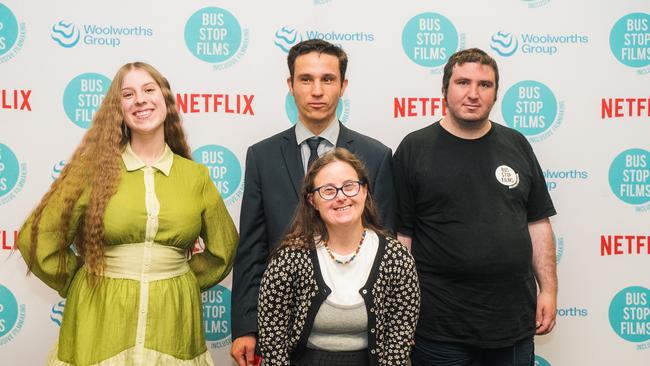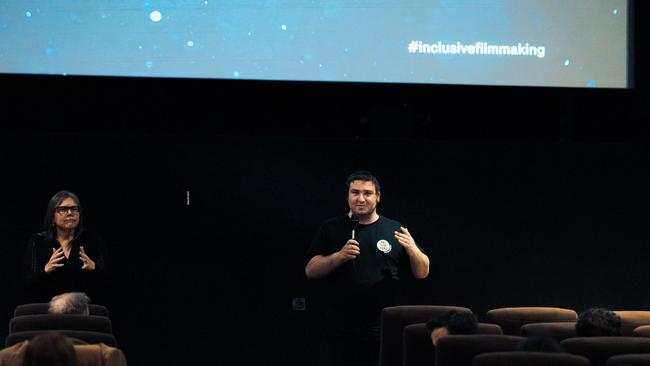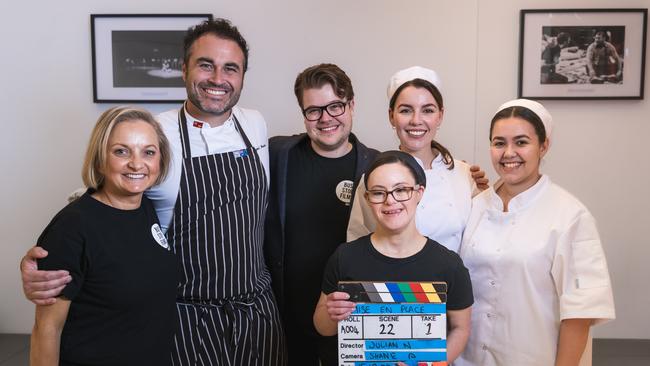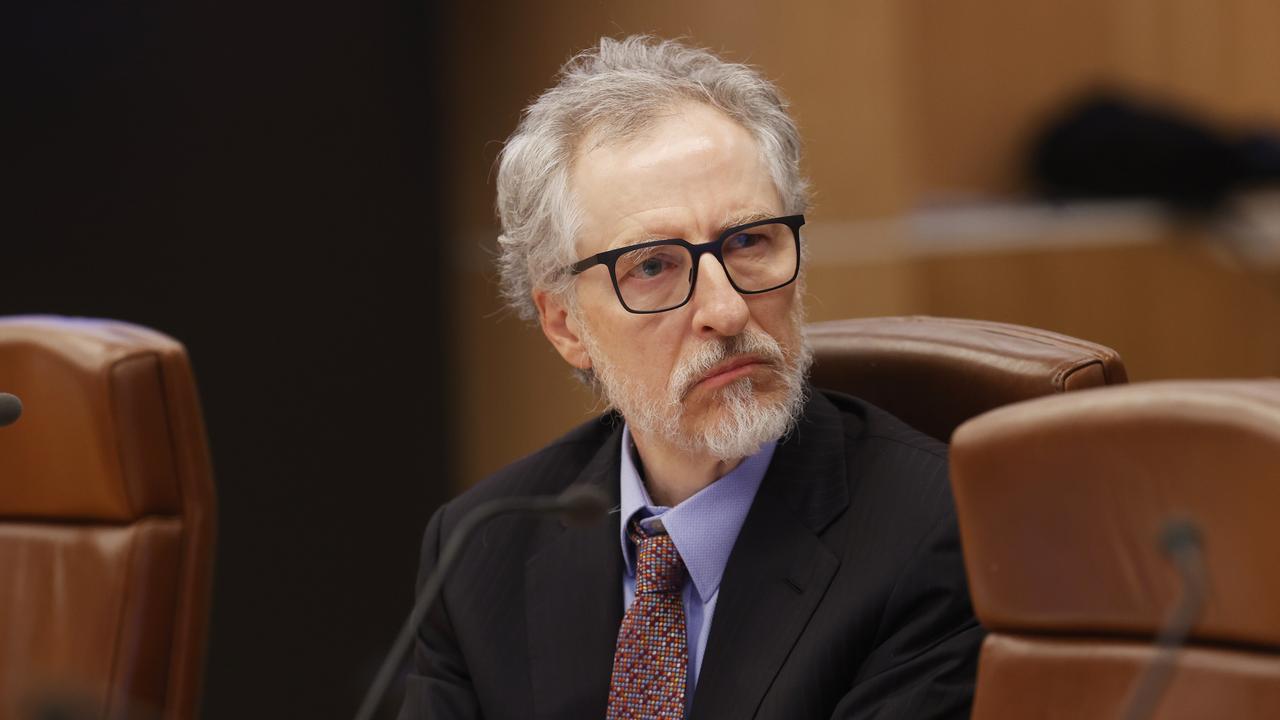Pioneering ‘inclusive filmmaking’ organisation Bus Stop Films introduces scholarships for aspiring Tassie-based filmmakers
Mia Talbot secured an opportunity of a lifetime working on set of a Netflix production, and there’s hopes that she’s not the last young Tasmanian with intellectual disabilities or autism to do so.

Tasmania
Don't miss out on the headlines from Tasmania. Followed categories will be added to My News.
For someone who grew up obsessed with the “excitement and action” of movies, securing a role on a major screen production was a major milestone for Mia Talbot.
Last April, the Launceston local worked a stint in the art department for Netflix drama series The Survivors – an opportunity that came about through her work with Bus Stop Films.
Since 2009, the not-for-profit has fought to improve accessibility to the screen industry through its Accessible Filmmaking Program.

More than 1000 students have gained practical filmmaking experience through the year-long course, with Ms Talbot one of only four students in the Launceston class.
But with the introduction of full and part-time scholarships in Hobart and Launceston, the spotlight is now firmly on Tassie talent, with Ms Talbot’s story one CEO Tracey Corbin-Matchett is hoping to replicate.
“It’s very exciting given there’s a lot of screen production coming to Tasmania,” Ms Corbin-Matchett said.
Facilitated by industry professionals and support workers, the program covers all practical aspects of filmmaking with participants working together to produce a short film.
“It’s very exciting to see the films because they come from the creativity and ideas of the participants,” she said.

“Not all the participants in the program will be looking for work in the screen industry, but they take on skills such as taking direction, working in a team, organisation and collaboration.
“It’s not a formal qualification but that is a good thing because it means participants don’t graduate out and can find connection and community.”
The notoriously competitive nature of the screen industry is compounded for those living with disabilities or in regional areas.
The most recent Screen Australia report found out of 2811 staff members on 70 Australian film and TV productions, only 8.9 per cent of cast and 5.3 per cent of crew members were disabled.
Melbourne University School of Culture and Communication researcher Anna Debinski said systemic ableism narrowed the understanding of “normal” working capacity.
“It excludes people who need breaks or take longer to do things,” Ms Debinski said.
“This manifests in the belief that people with disabilities cannot ‘keep up’ with cut-throat elements of the Australian screen industry (when) these elements actually impact all screen workers negatively.
“Screen stories shape how we understand each other. Bus Stop Films shows people with intellectual disability can learn the skills required to work in the industry and can contribute new perspectives … but they cannot do this work alone.”
Ms Talbot said the on-set presence of support workers fostered a “really safe space” for self-expression and development.
“If anything was ever wrong the support workers would help out and make everyone calm to allow us to continue being our best,” Ms Talbot said.
“Unfortunately a lot of people who have all these stories and ideas won’t be able to tell them.
“It’s not only important for people with intellectual disability and autism but also big filmmakers and companies because it (provides) more talent from people who are unique and can give something different.”
To find out more about how to apply visit busstopfilms.com.au/programs
Originally published as Pioneering ‘inclusive filmmaking’ organisation Bus Stop Films introduces scholarships for aspiring Tassie-based filmmakers


